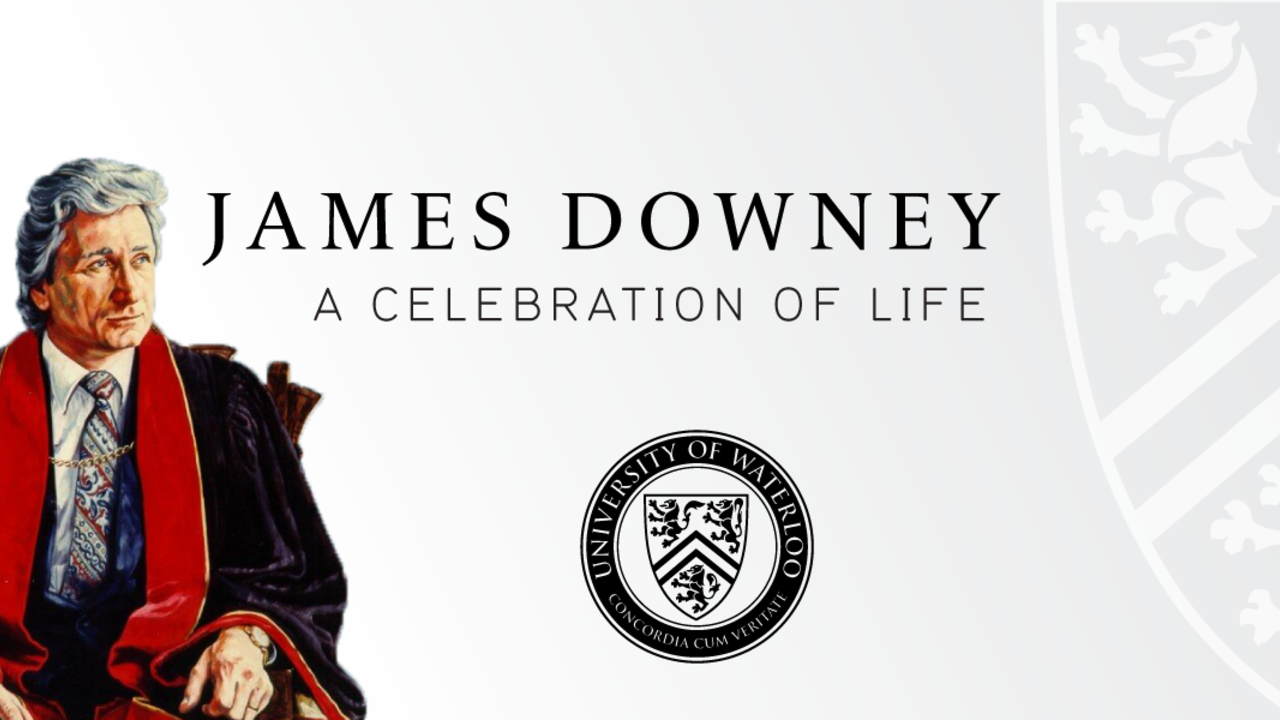
Waterloo hosts celebration of life for former president James Downey
Downey left lasting impact on Waterloo co-op and experiential education

Downey left lasting impact on Waterloo co-op and experiential education
By University RelationsThe University of Waterloo celebrates the life and legacy of former-president Dr. James (Jim) Downey on November 25 in a special ceremony and reception.
The in-person event is also being live-streamed on the University’s YouTube channel.
Downey was born in Winterton, Newfoundland in 1939. He completed a BA, BEd and MA at Memorial University, and then a PhD in English at the University of London. Among his many accolades, Downey was a recipient of the Order of Canada and was awarded eight honorary degrees.
During his time at Waterloo, Downey was instrumental in the evolution of the University’s world-renowned co-operative education program as the founding director of the Centre for the Advancement of Co-operative Education (WatCACE). In 202o, WatCACE would be rebranded as the Work-Learn Institute (WxL).
“Jim’s support of co-operative education at Waterloo continues to serve our students today, and the University’s solid position as a global leader in co-op is a direct result of his leadership and vision,” says president and vice-chancellor Vivek Goel. “Indeed, universities across Canada and beyond have benefitted from his intellect and his dedication to students and their learning.”
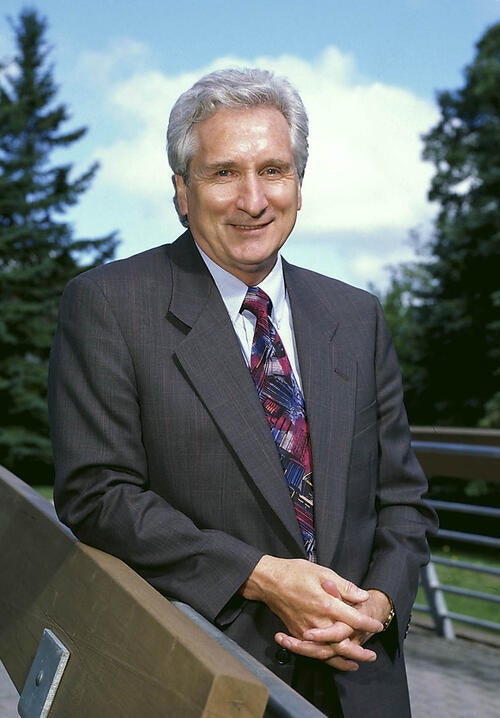
The University of Waterloo marks the passing of president emeritus James Downey with a special Celebration of Life event.
Downey served as president of the University of Waterloo from 1993 to 1999. He continued to be an important influence at the University after his time as president, returning to the classroom as a professor of English and taking on several administrative roles.
“When I first met Jim Downey in 1993, I was a newly-minted, or at least newly-tenured faculty member in the Classical Studies Department,” says Dr. Sheila Ager, dean of the Faculty of Arts. “Jim had just joined the University of Waterloo as our new President, our first from outside the province – or rather 'from away', given that he hailed from Newfoundland. I have a vivid memory of an early address Jim gave to faculty and staff in the Theatre of the Arts.”
“Although new to Waterloo, he was already a seasoned university president, with considerable experience in forward thinking, innovation and future planning,” Ager continues. “But on that day, quoting the French author and poet Paul Valéry, Jim spoke of the paradox of our progress into the future: 'Like a man rowing a boat that floats on the tide, we enter the future facing the past.' I have always remembered the duality of Jim’s vision, and his emphasis on remembering and understanding what has gone before as vital to preparing for and shaping what will come after.”
Ken McLaughlin, distinguished professor emeritus, historian and a friend of Downey’s, was part of the founding committee for WatCACE. In a recent interview on the Beyond the Bulletin podcast, McLaughlin told host Pamela Smyth of Downey’s approach to collegiality.
“He wasn’t just making a peremptory decision. He knew everybody on campus, and he was very friendly and very gregarious,” McLaughlin says
Ken McLaughlin, historian and distinguished professor emeritus, appears on the Beyond the Bulletin podcast to discuss James Downey’s time as Waterloo president and vice-chancellor.
During his time as Waterloo’s president and vice-chancellor, Downey also served terms as chair of the Council of Ontario Universities and chair of the Association of Commonwealth Universities.
Downey became an education consultant for the Government of Ontario and advised several Canadian and international universities on issues of governance and management. He was the founding president of the Higher Education Quality Council of Ontario.
Downey’s annual seminar for new university presidents was sponsored by the Association of Universities and Colleges of Canada. In 2005, he was appointed chair of the Board of Governors of the Royal Military College of Canada.
Read more about Downey’s impact on co-operative and experiential education at Waterloo in the feature article from Waterloo’s Work Learn Institute.
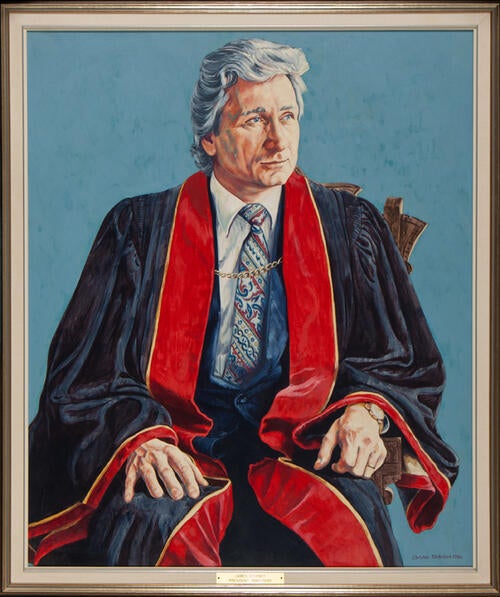
Portrait of Dr. James Downey in academic regalia by Christian Nicholson.
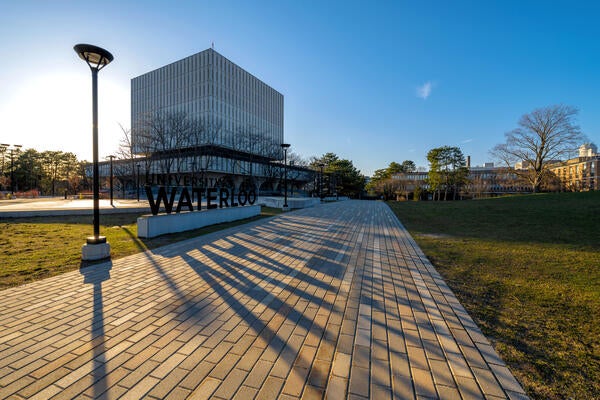
Read more
Waterloo's fourth president made a global impact
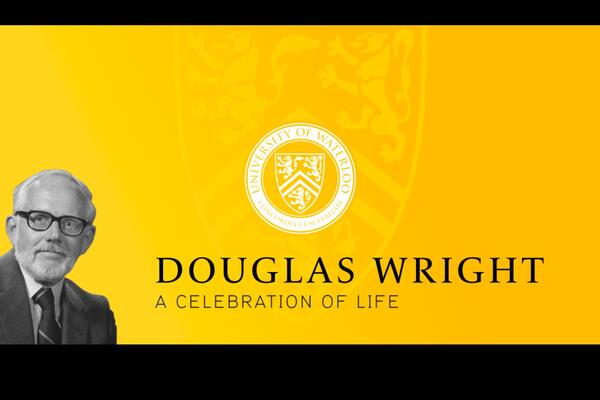
Read more
Former president and first dean of the Faculty of Engineering left lasting impact
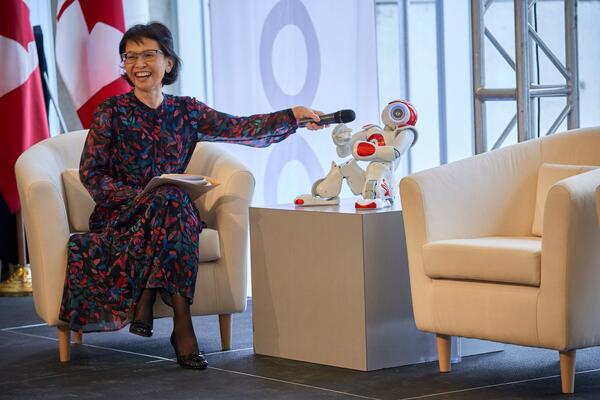
Read more
The first woman to helm Waterloo Engineering, she was a champion of advancing education and research
The University of Waterloo acknowledges that much of our work takes place on the traditional territory of the Neutral, Anishinaabeg, and Haudenosaunee peoples. Our main campus is situated on the Haldimand Tract, the land granted to the Six Nations that includes six miles on each side of the Grand River. Our active work toward reconciliation takes place across our campuses through research, learning, teaching, and community building, and is co-ordinated within the Office of Indigenous Relations.